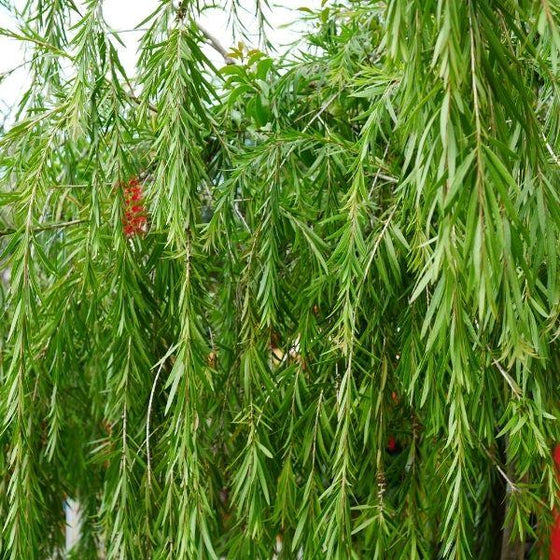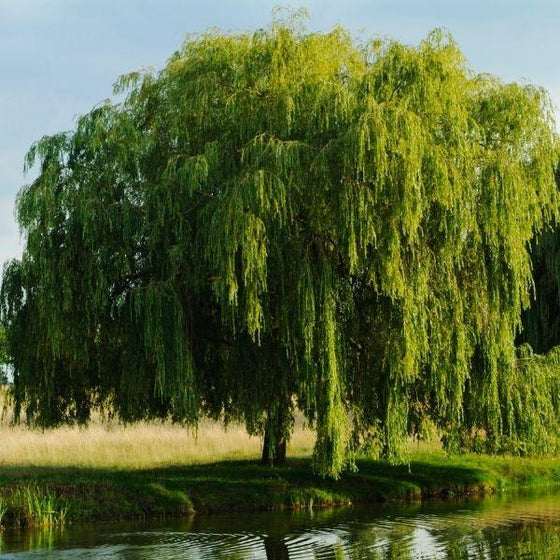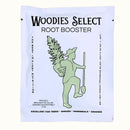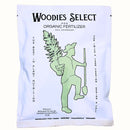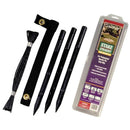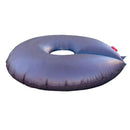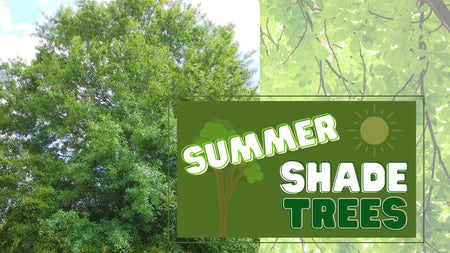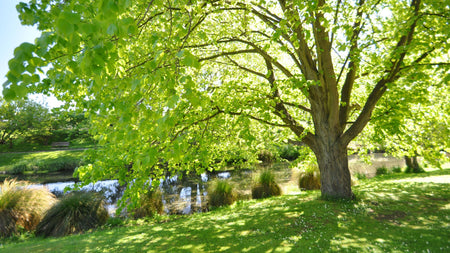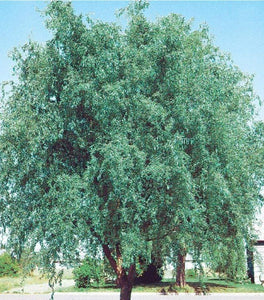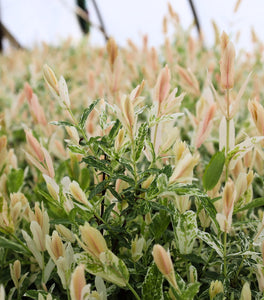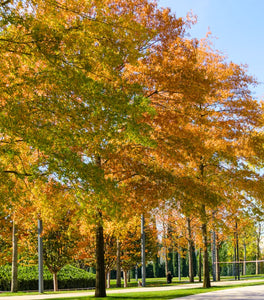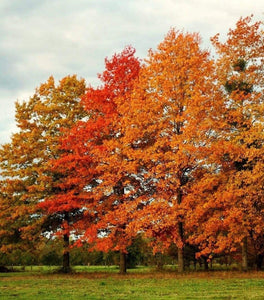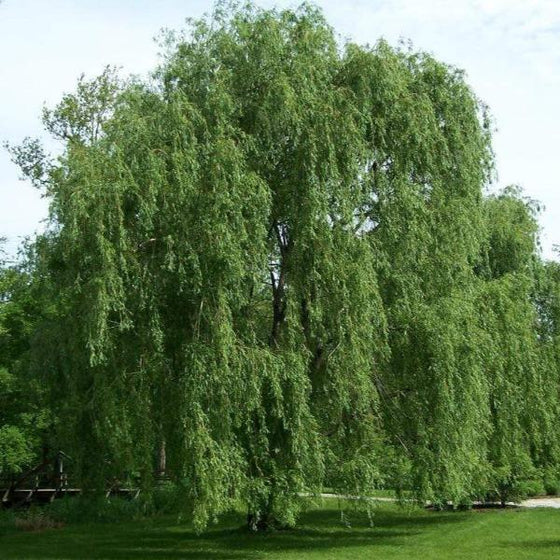
Images Depict Mature Plants
Weeping Willow Tree – Fast-Growing Shade Tree with Graceful Arching Branches
An iconic tree for timeless landscapes.
The Weeping Willow Tree (Salix babylonica) is one of the most beloved ornamental shade trees, known for its sweeping, cascading branches that create a soft, graceful silhouette. With its fast growth rate and ability to provide shade in just a few seasons, it’s a favorite for homeowners who want to add instant character and elegance to their property.
Perfect for water features and large landscapes.
Weeping Willows thrive near ponds, streams, and low-lying areas, where their roots help stabilize soil and prevent erosion. Their love for moisture makes them an ideal choice for water gardens, but they also adapt well to ordinary garden soils as long as there is consistent moisture. Few trees make such a dramatic statement while also serving a practical landscaping role.
Fast-growing shade tree with year-round beauty.
Known as one of the fastest-growing landscape trees, the Weeping Willow can grow over 3 feet per year when young, quickly reaching 30–50 feet tall with a wide, spreading canopy. This makes it one of the best options for creating cool shade and natural privacy in record time. Its arching green foliage moves gracefully in the wind, offering year-round interest.
Adaptable, hardy, and low-maintenance.
Hardy in USDA Zones 4–9, the Weeping Willow is both cold-hardy and heat-tolerant, making it adaptable to much of the country. Once established, it requires little care beyond occasional pruning to maintain shape and remove low-hanging branches. If you’re looking for a statement tree that combines beauty, function, and fast growth, the Weeping Willow is an unforgettable choice.
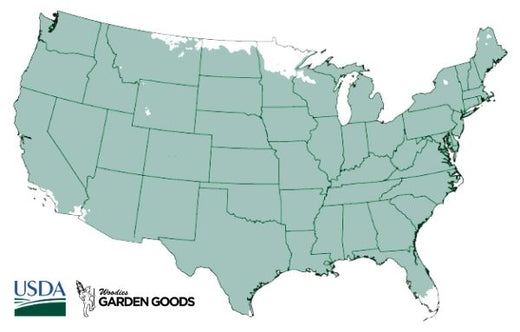
| Hardiness Zone: | 4-9 |
|---|---|
| Mature Height: | 30 to 50 feet |
| Mature Width: | 35 to 40 feet |
| Classification: | Broad Leaved deciduous tree, Shade Tree |
| Sunlight: | Full Sun |
| Habit: | Upright |
| Foliage: | Dark Green, golden yellow fall color |
| Flower Color: | Drooping Catkins |
| Pruning Season: | Tolerates hard pruning |
| Soil Condition: | Any well drained soil |
| Water Requirements: | Water well until established |
| Uses: | Tolerates moist soil and full sun. Full sun brings out the best fall color. Will adapt to drier sites |
How to Care for Weeping Willow Tree
Be sure to read our planting instructions to ensure a healthy and happy Weeping Willow Tree for years to come!
How do I plant a Weeping Willow tree?
Choose a sunny location with moist, well-draining soil. Dig a hole twice as wide as the root ball and just as deep. Place the tree so the root flare sits slightly above ground level, backfill halfway, water thoroughly, then finish filling and water again. Weeping Willows grow large, so allow at least 40–50 feet of space from buildings, driveways, and underground pipes. After planting, apply a 2–3 inch mulch layer around the base to conserve moisture and regulate soil temperature. Water regularly during the first year to help roots establish quickly.
How often should I water a Weeping Willow?
Weeping Willows thrive in moist soil, so provide consistent water during their first growing season, especially during hot or dry periods. Water deeply 1–2 times per week, ensuring the soil remains evenly moist but not soggy. Once established, these trees are more drought-tolerant but still perform best with consistent moisture. Planting near a natural water source reduces the need for supplemental irrigation.
When and how should I fertilize my Weeping Willow tree?
Fertilize in early spring with a balanced, slow-release tree fertilizer to encourage healthy growth and lush foliage. Apply evenly around the drip line and water in well. A second application in midsummer can help support rapid growth in younger trees. Avoid over-fertilizing, as Weeping Willows are naturally vigorous growers. Too much fertilizer can encourage excessive top growth at the expense of strong root development.

Do Weeping Willows need pruning?
Prune in late winter or early spring before new growth begins. Remove any dead, broken, or crossing branches to maintain a healthy structure. Shape the canopy as needed, keeping the tree’s graceful form intact. As the tree matures, occasional thinning may be needed to improve air circulation. Avoid heavy pruning, as Weeping Willows look best when their branches are allowed to sweep naturally toward the ground.

